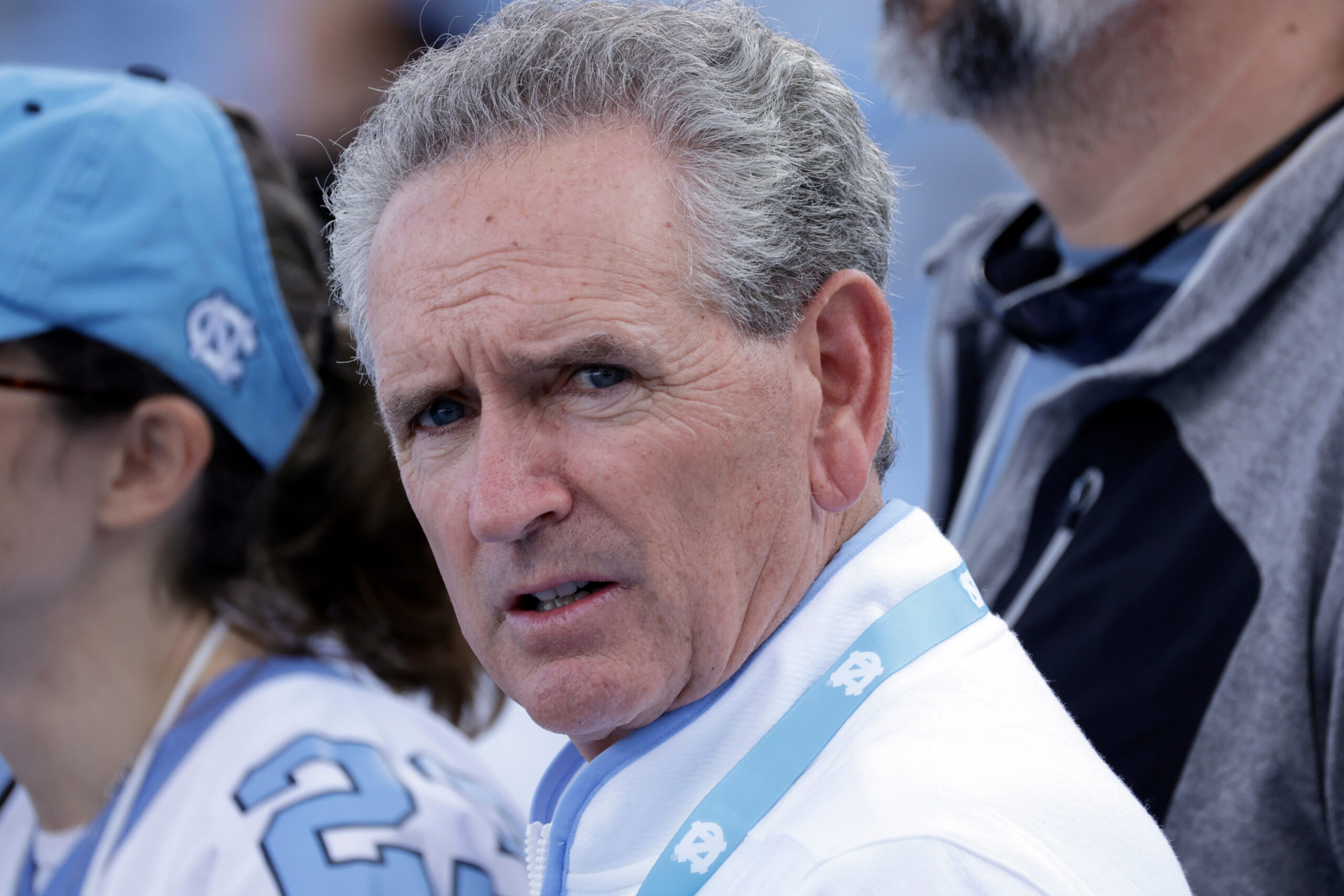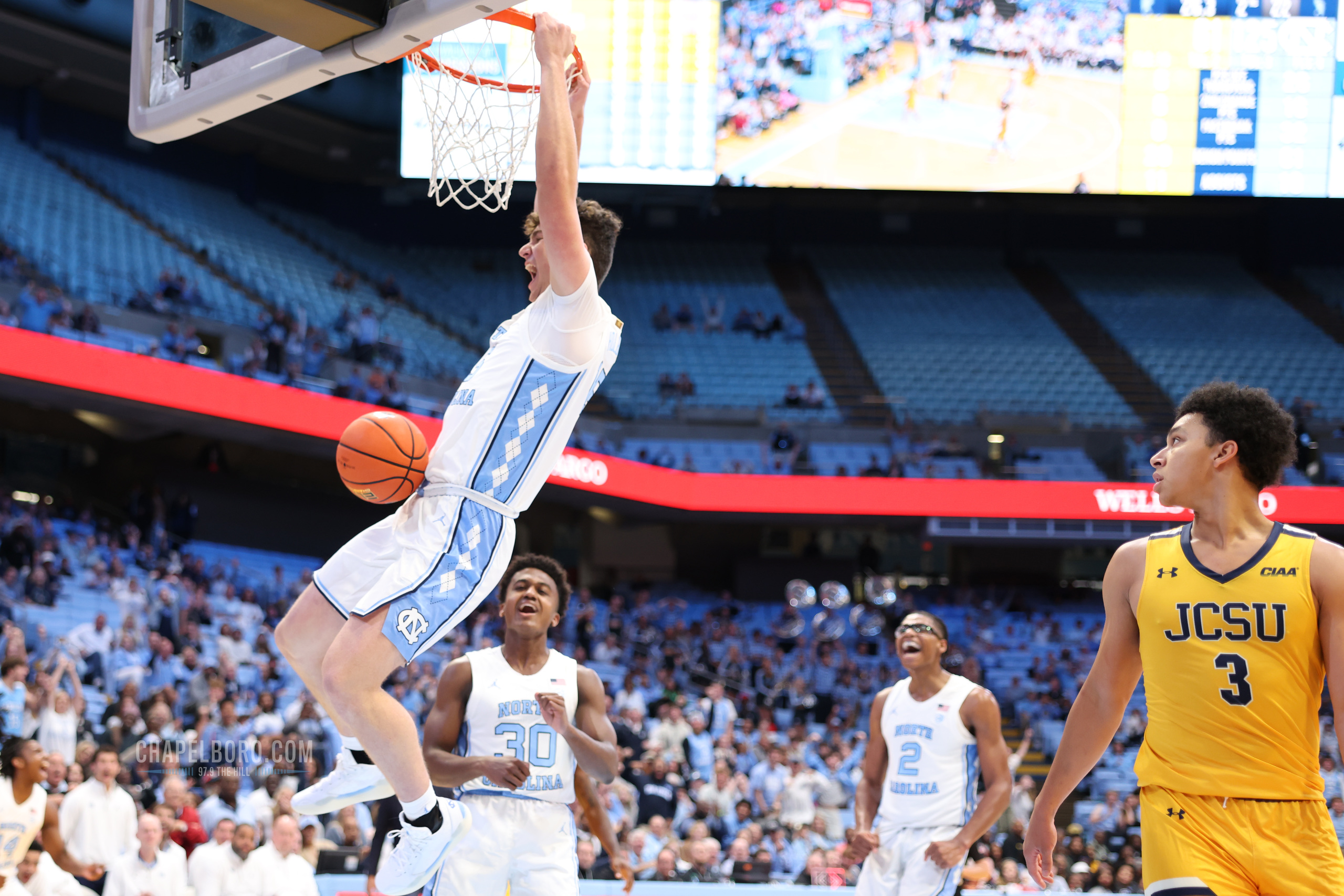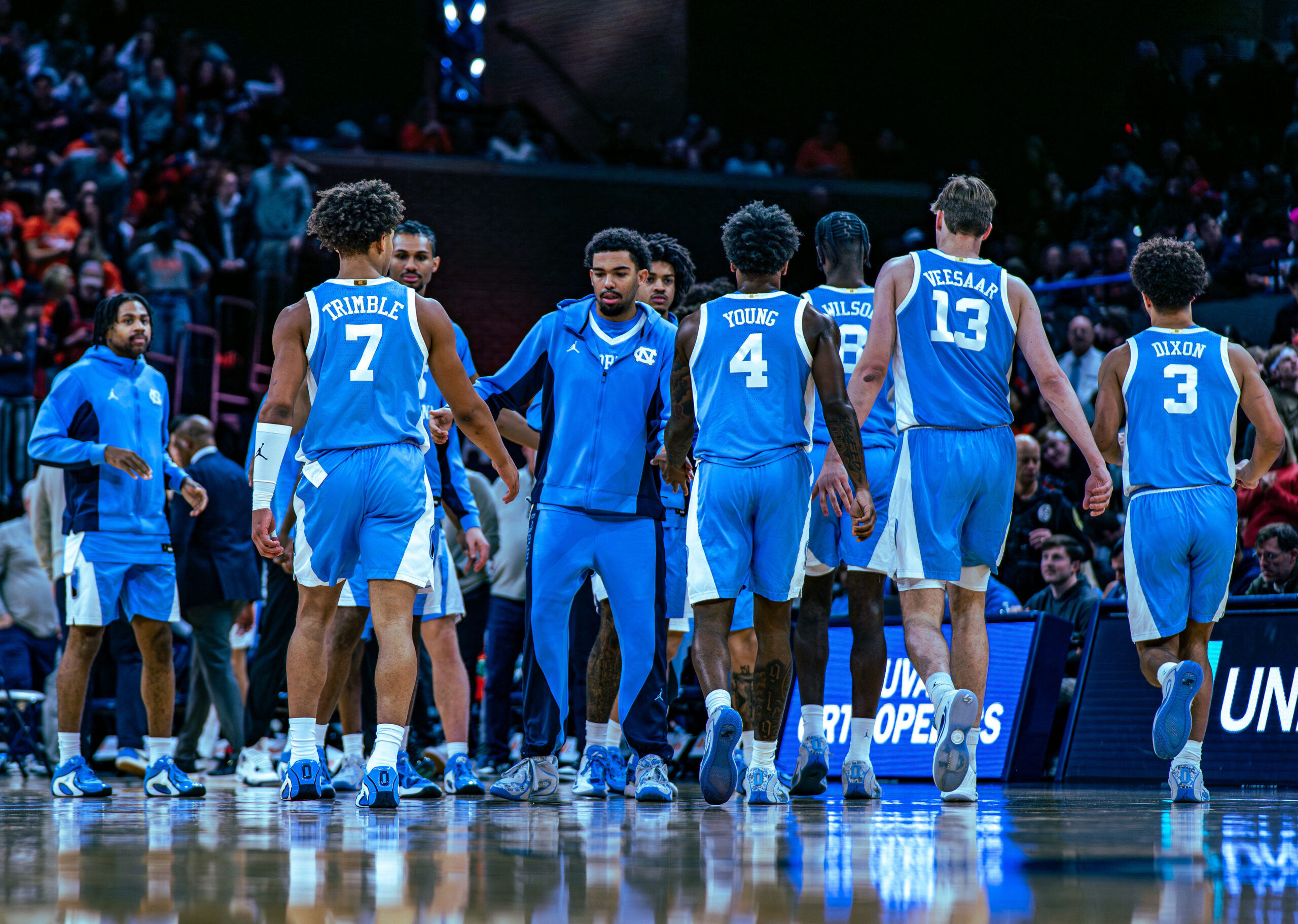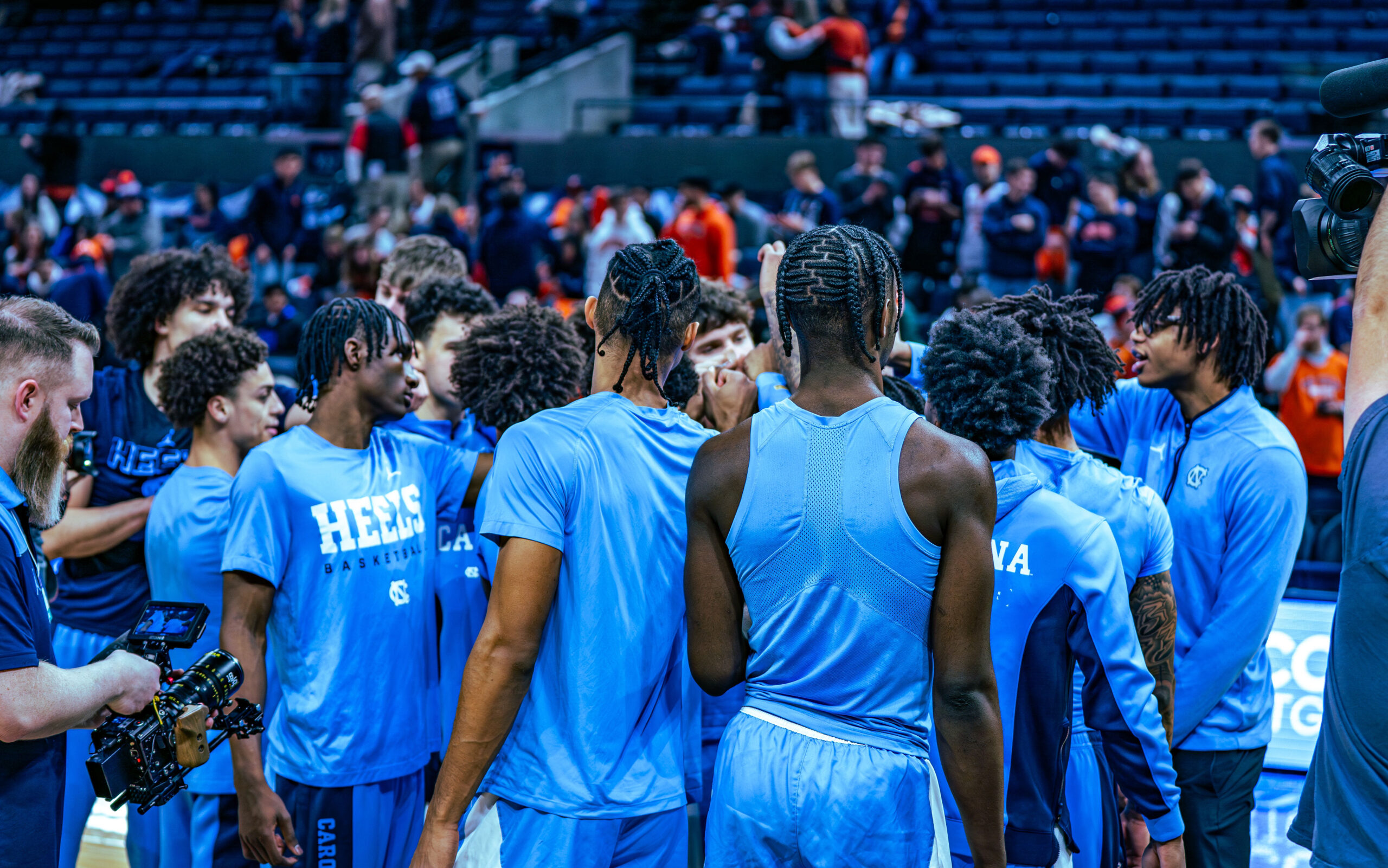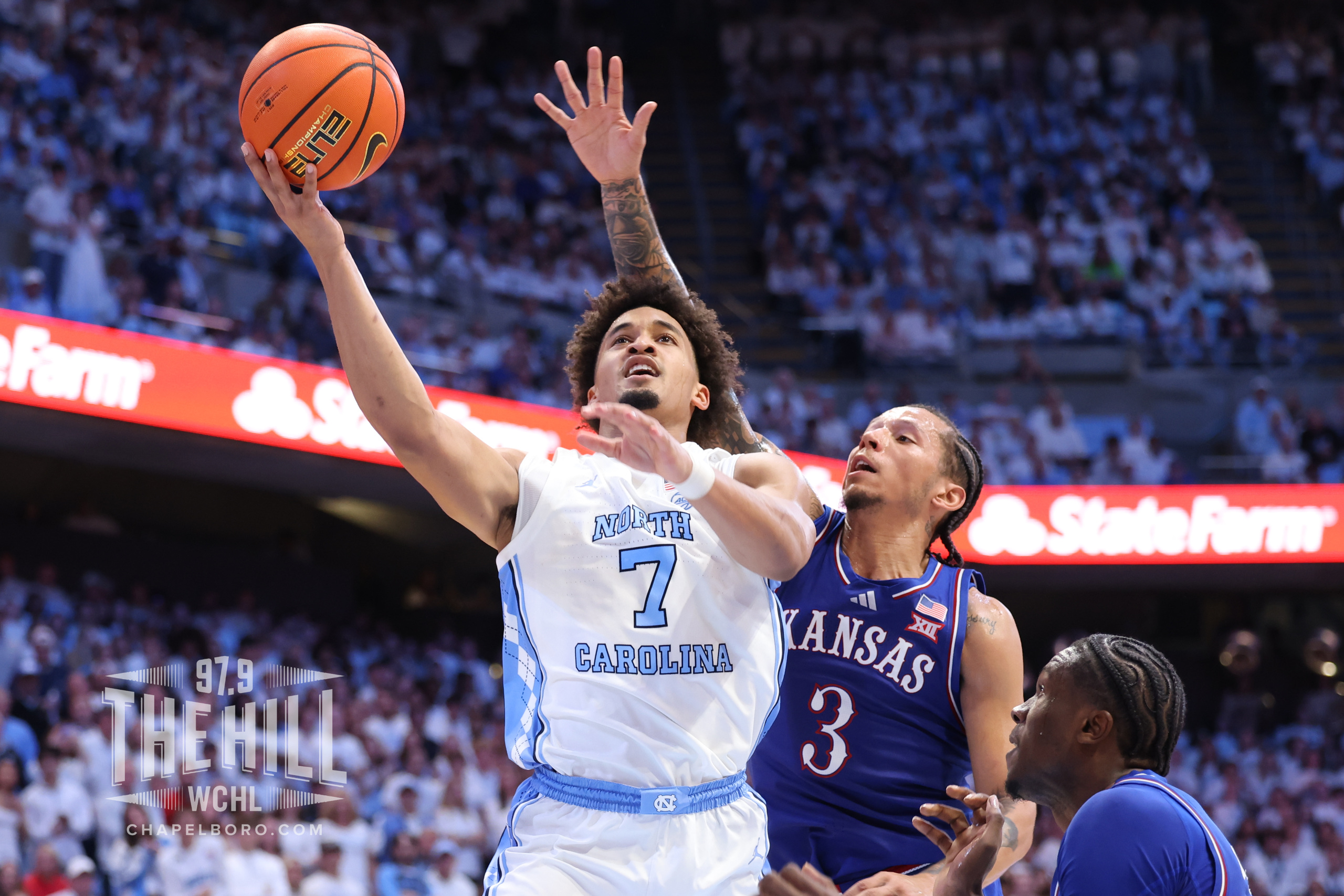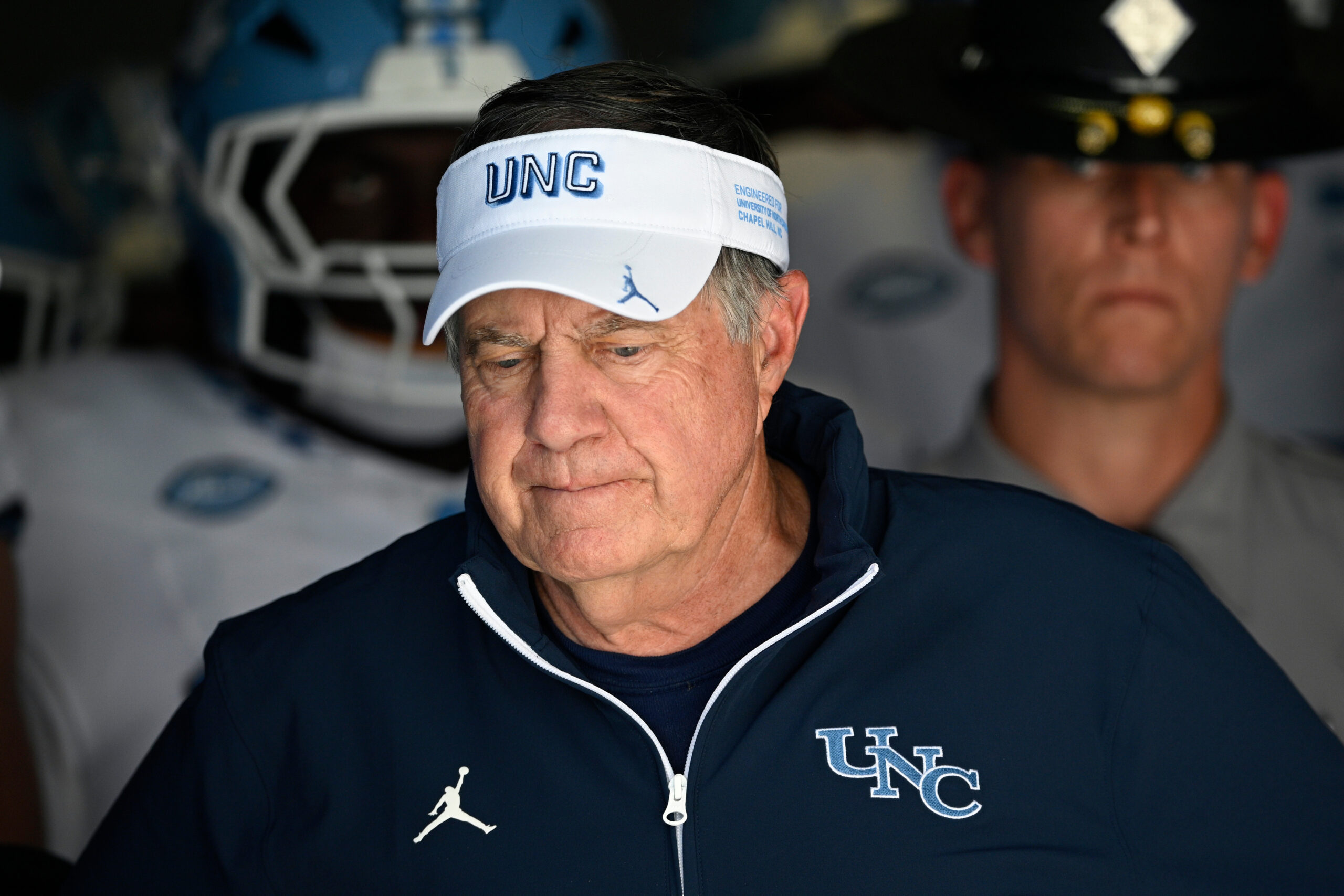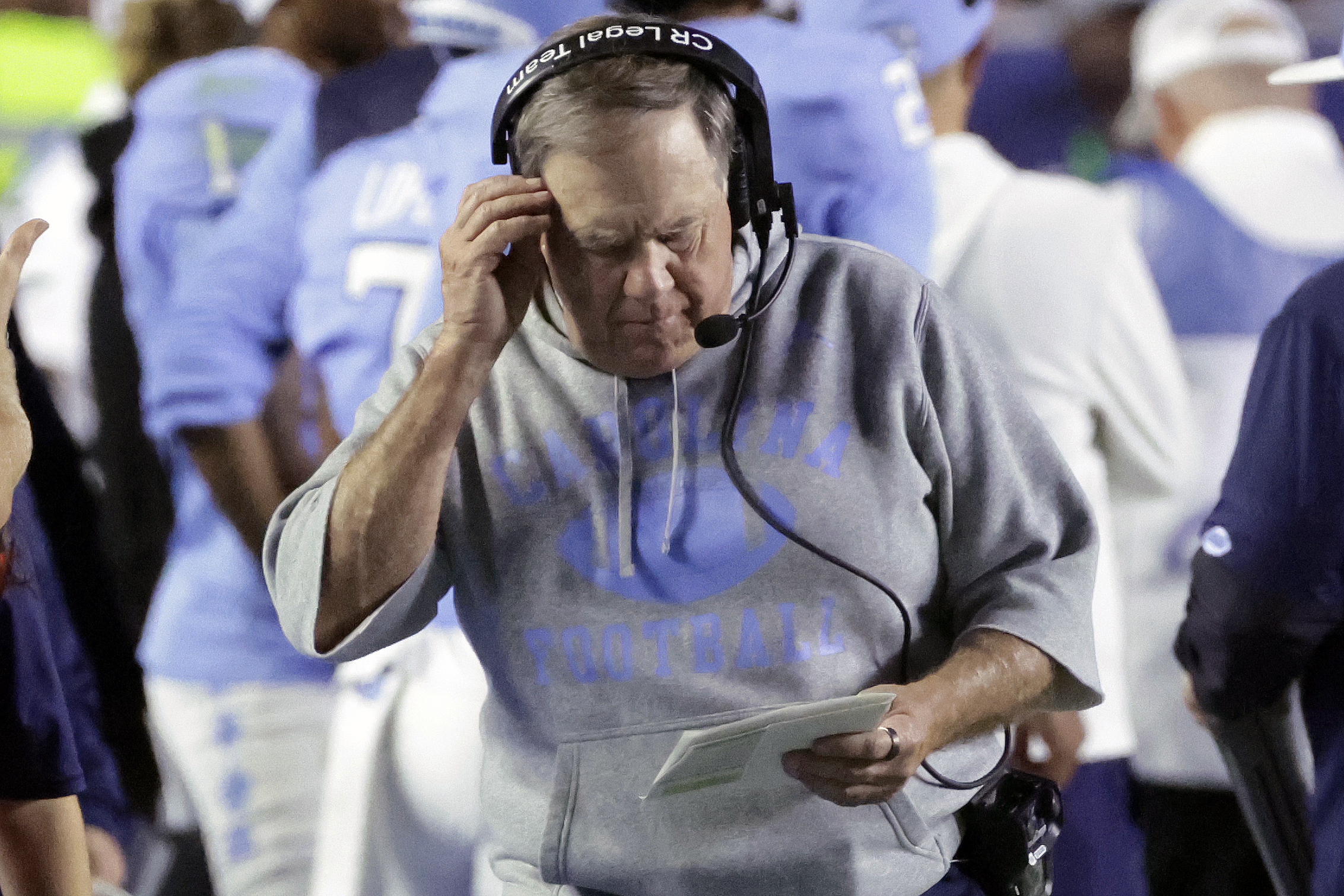
UNC athletic director Bubba Cunningham broke down how the school will be sharing athletic revenue with its sports programs in an interview with the Carolina Insider Podcast Friday morning. Cunningham said the money, which totals more than $20.5 million (roughly 22 percent of revenue for the four major college conferences, as determined by the House v. NCAA settlement), will be split between the football, men’s basketball, women’s basketball and baseball programs.
While many schools will be earmarking 75 percent of that money for football, 15 percent for men’s basketball and 5 percent each to baseball and women’s basketball, Cunningham said UNC would be distributing its funds differently in the 2025-26 academic year: 65 percent to football (roughly $13 million), 35 percent to men’s basketball (roughly $7 million) and a smaller sum ($250,000 each) to women’s basketball and baseball.
“I thought the fairest thing to do was give the revenue sharing to those sports that had generated it,” Cunningham said.
Cunningham explained that while the $250,000 approximately equaled the value generated by the baseball program, that sum actually exceeded the value of the women’s basketball program. But he said strong fundraising efforts on the part of head coach Courtney Banghart and her staff earned the extra cash.
“Her payroll, if you will, is over $1 million this year for the women’s basketball team,” Cunningham said of Banghart. “That’s very competitive with some of the top programs in the country.
“We tried to match,” Cunningham went on to say. “Who generated the money? Their team got it. And we tried to match, ‘What is our competition, and where are they?'”
Cunningham also noted higher scholarship allocations will affect many programs across campus. Notably, the baseball program’s allocation will more than double. In previous seasons, baseball programs were only allowed 11.7 total scholarships for their rosters. Now, that number is 34.
For UNC’s 24 other varsity teams which will not receive direct payments from revenue sharing, Cunningham’s view is the higher scholarship allocations will provide a suitable trade-off for the lack of income.
“We can provide more scholarships to our Olympic sports programs than ever before,” Cunningham said. “And that’s gonna help sustain them. Commercial activity goes to those that generate it. Educational benefits are gonna go to the sports that have been previously subsidized [by football and men’s basketball revenue].”
The financial numbers will be reviewed on a year-by-year basis, Cunningham said, and he didn’t rule out changes for the 2026-27 academic year.
Featured image via Chapel Hill Media Group/Dakota Moyer
Chapelboro.com does not charge subscription fees, and you can directly support our efforts in local journalism here. Want more of what you see on Chapelboro? Let us bring free local news and community information to you by signing up for our newsletter.

